29 March 2025
Let’s face it: the way we grow our food has a massive impact—on the environment, on our health, and on the future of humanity. Organic farming, with its eco-friendly and health-conscious practices, has been hailed as a solution to many of the problems linked to conventional agriculture. But what makes it so special? And why should we care? Stick around, because by the end of this article, you’ll see why organic farming isn’t just a trendy label—it’s a game-changer for the planet and your well-being.
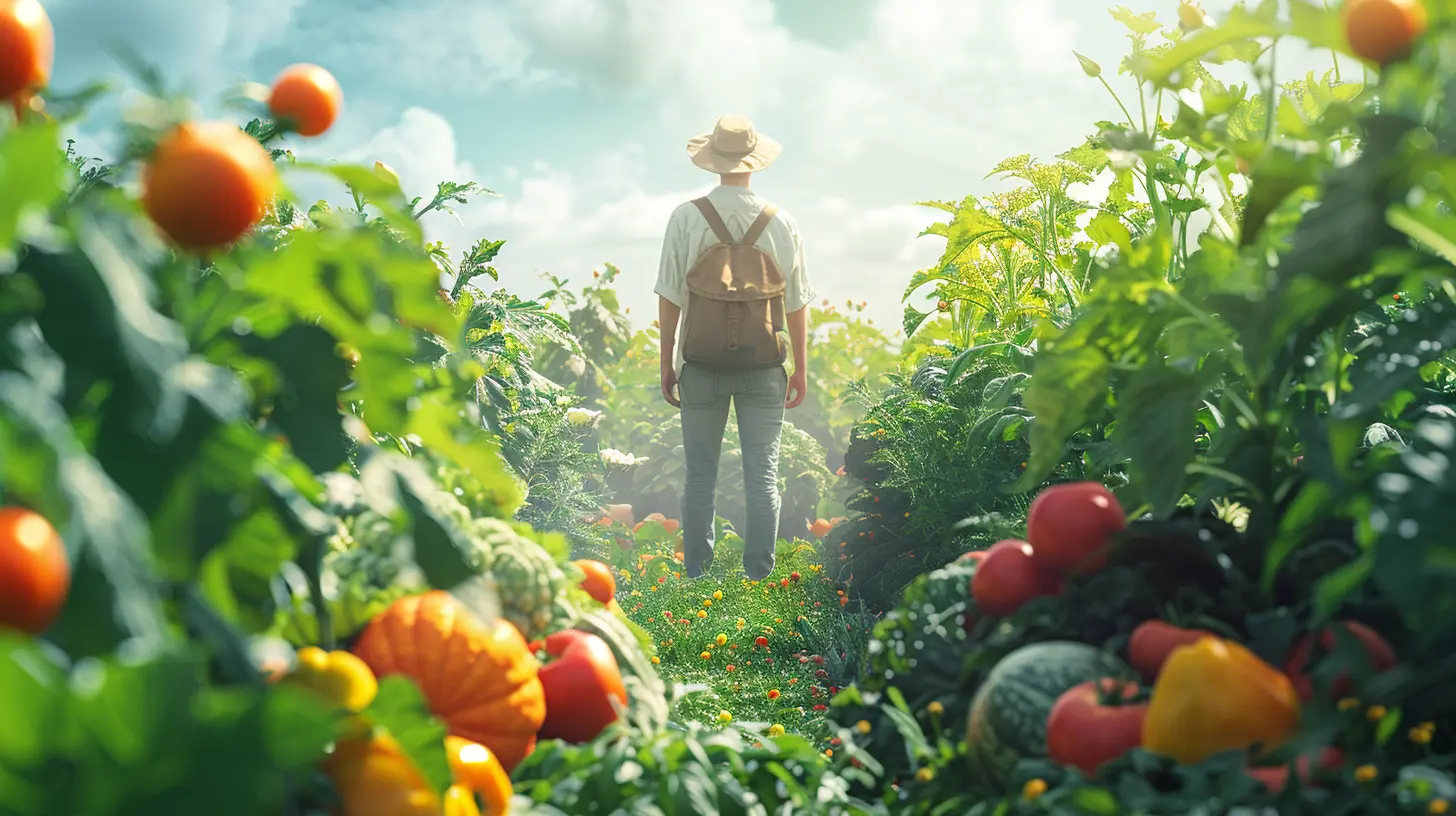
What Exactly Is Organic Farming?
Alright, let’s start with the basics. Organic farming is a method of agriculture that avoids synthetic chemicals like pesticides, herbicides, and fertilizers. Instead, it relies on natural processes, biodiversity, and eco-friendly techniques to grow food. Think of it as farming the way nature intended—no shortcuts, no artificial additives, just wholesome practices that respect the Earth.Farmers who go organic focus on maintaining soil health, using compost and crop rotation to nourish the land. They also steer clear of genetically modified organisms (GMOs) and routinely raise animals in environments that let them roam freely and live stress-free lives. In a nutshell, it’s farming that works with nature, not against it.
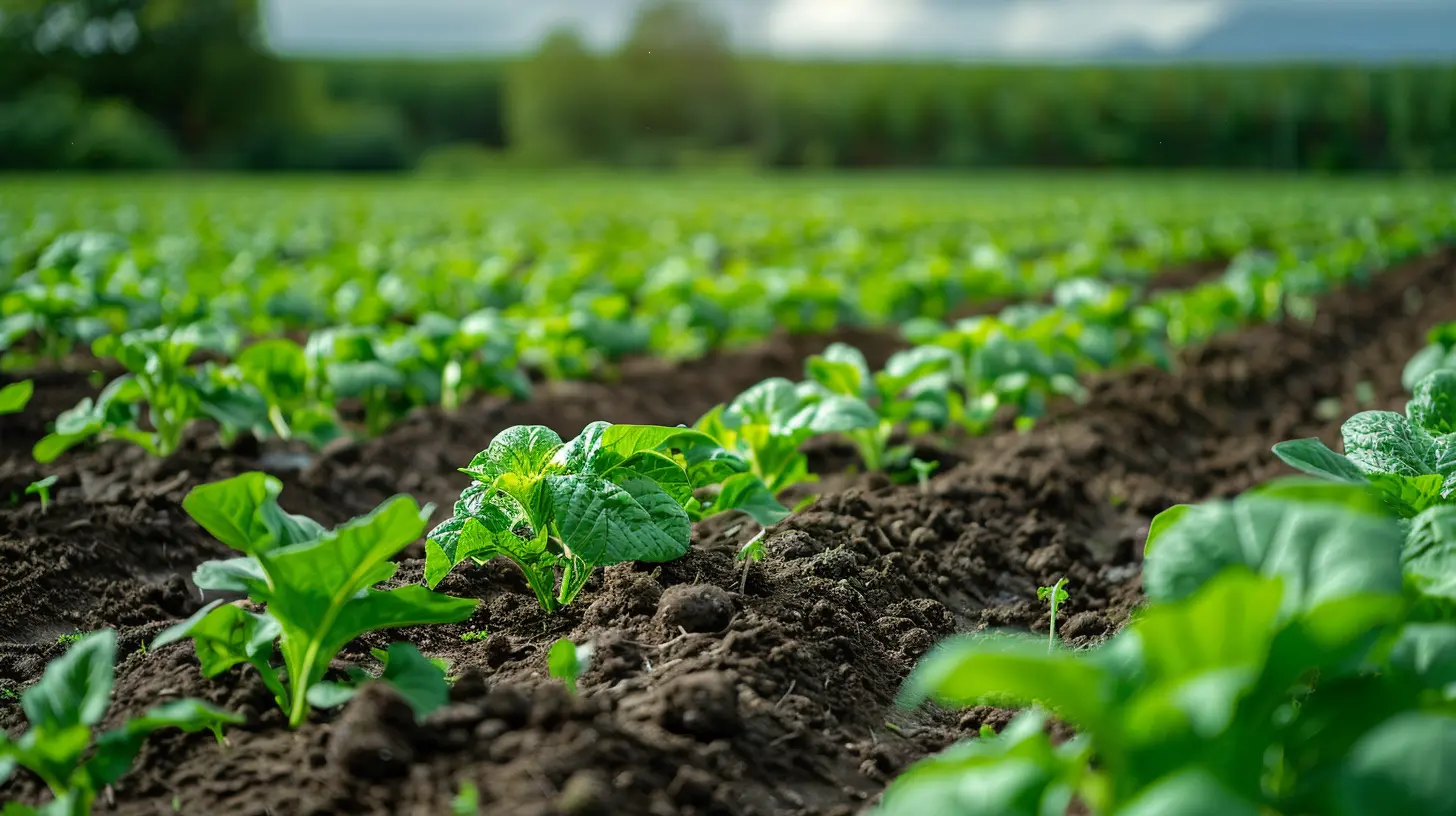
How Organic Farming Protects the Planet
When it comes to safeguarding the environment, organic farming is like the unsung hero we’ve all been waiting for. Here’s how it makes a difference:1. Healthy Soil, Healthy Planet
Soil is the foundation of life. Conventional farming often strips the land bare with heavy tilling and overuse of synthetic fertilizers. But organic farming? It’s like giving the Earth a spa day. By using natural compost, cover crops, and crop rotation, organic farming keeps the soil rich in nutrients and teeming with life.Healthy soil acts like a sponge—it traps carbon dioxide from the atmosphere and locks it away. This process, called carbon sequestration, helps fight climate change. You know what they say: happy soil, happy planet!
2. No Harmful Chemicals Here
Ever wondered where all those pesticides and herbicides go after being sprayed on crops? Spoiler alert: they don’t just disappear. These chemicals often seep into the ground, polluting water sources and harming marine ecosystems. Yikes, right?Organic farming ditches synthetic chemicals in favor of natural pest control methods—like introducing beneficial insects or planting companion crops. This minimizes pollution and protects ecosystems. So, the next time you bite into that organic apple, give yourself a pat on the back—you’re helping keep waterways clean.
3. Biodiversity Is the Name of the Game
Imagine a world where we only grow a single type of crop everywhere. Sounds boring, doesn’t it? That’s what happens with monocropping, a practice common in conventional farming. It depletes the soil, encourages pests, and reduces biodiversity.Organic farming flips the script. It promotes crop diversity, creating a vibrant ecosystem where plants, animals, and insects can thrive. Bees, butterflies, and other pollinators love organic farms because they’re free from chemical exposure and teeming with flowers. And let’s not forget how diverse ecosystems are better at adapting to climate change—another win for Team Organic!
4. Reducing Greenhouse Gas Emissions
Here’s a not-so-fun fact: conventional farming is one of the largest contributors to greenhouse gas emissions. From overusing nitrogen fertilizers to running heavy machinery, it’s a major culprit behind climate change.Organic farming takes a more sustainable approach. By avoiding synthetic fertilizers and relying on human-scale labor or eco-friendly machinery, organic farms produce fewer emissions. Plus, healthy soil (remember the carbon sequestration thing?) acts like a carbon sink. Double win!
5. Conserving Water Like a Pro
Did you know organic farms are excellent at conserving water? Because their soil is rich in organic matter, it holds onto water better, reducing the need for irrigation. In regions prone to drought, organic farming can be a lifeline. Think of it as Mother Nature’s way of keeping her water bill in check.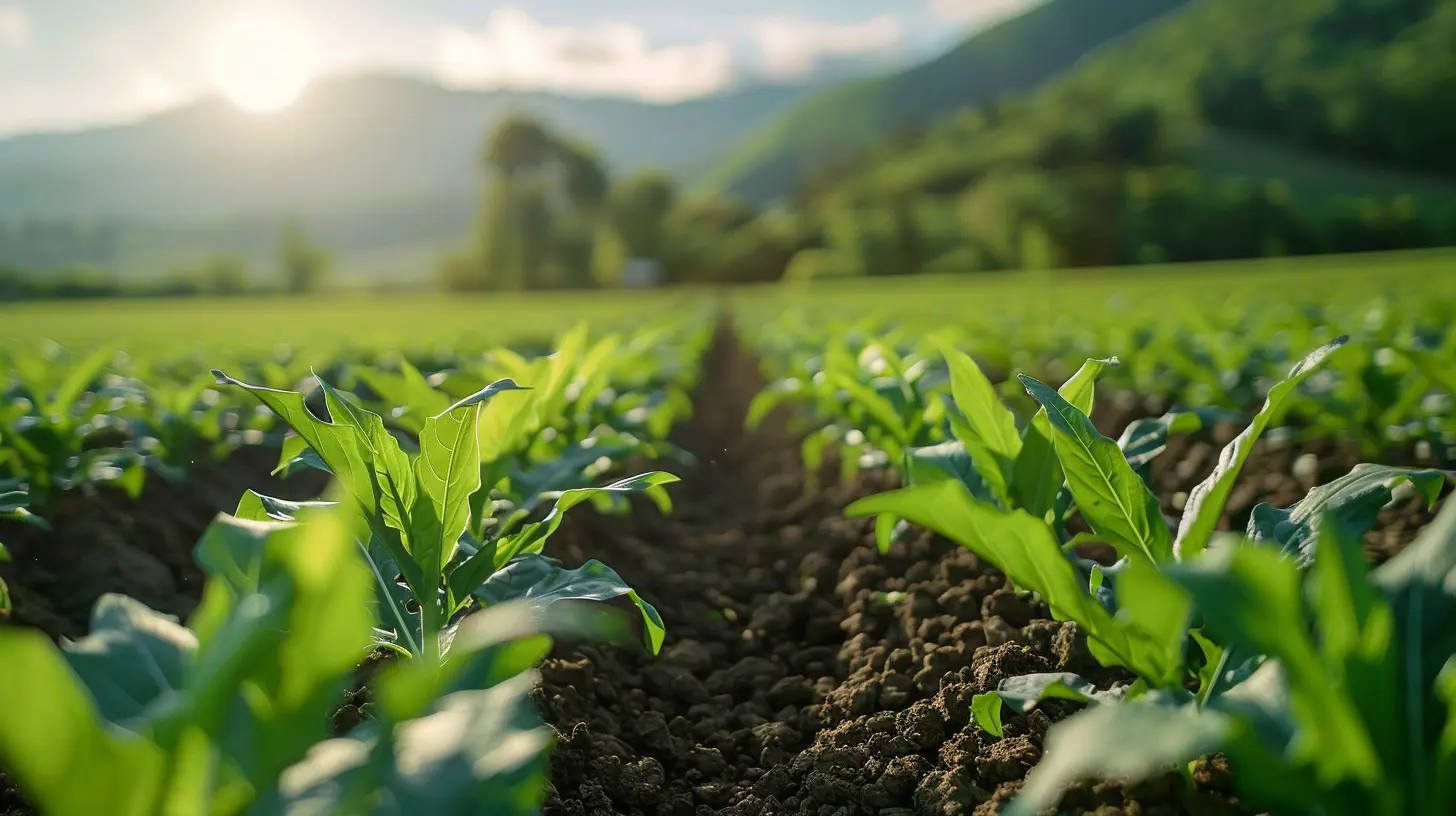
How Organic Farming Benefits Your Health
Okay, so organic farming is great for the planet. But what about your health? Let’s dive into the ways going organic can do wonders for your body.1. Fewer Chemicals on Your Plate
Nobody likes the idea of eating a salad with a side of pesticides. Thankfully, organic foods are grown without synthetic chemicals, so you can enjoy your meals without worrying about what’s lurking beneath the surface. While occasional exposure to pesticides might not seem like a big deal, long-term exposure has been linked to health problems like hormone disruption and even certain cancers. Yikes.When you go organic, you’re reducing your risk of exposure to these harmful substances. It’s like giving your body a break from all the unnecessary additives.
2. More Nutrients = More Bang for Your Buck
Studies suggest that organic fruits and veggies often contain higher levels of certain nutrients, including antioxidants. Why? Because organic plants have to fend for themselves without the help of synthetic chemicals. This “stress” encourages them to produce more natural compounds to protect themselves—and those compounds just happen to be good for us, too.Think of it like working out: the harder the plant “works,” the stronger (and healthier) it becomes. And when you eat organic, you’re reaping the benefits of all that plant power.
3. Say Goodbye to Antibiotics and Hormones
If you consume meat or dairy, here’s a reason to consider going organic: organic livestock are raised without the routine use of antibiotics or growth hormones. Overuse of antibiotics in conventional farming has contributed to the rise of antibiotic-resistant bacteria—a terrifying thought for future medical treatments.Organic farming allows animals to grow at their natural pace and prioritizes their well-being. The result? Cleaner, more wholesome meat and dairy products for you and your family.
4. You’re Avoiding GMOs
Let’s talk GMOs (genetically modified organisms). While the jury’s still out on their long-term health effects, many people prefer to avoid them altogether. Organic foods are inherently GMO-free, giving you peace of mind if you’re wary of lab-altered crops.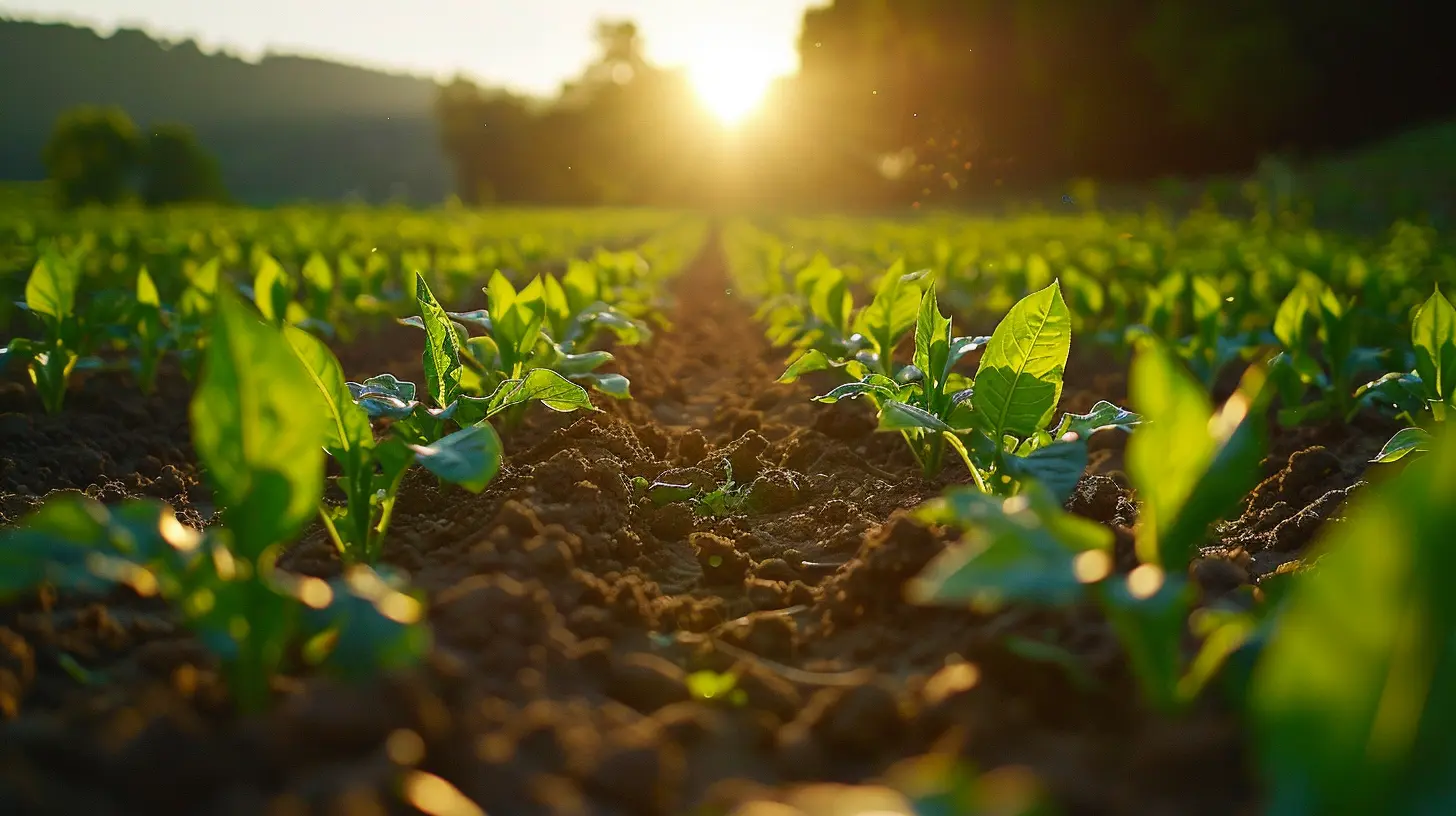
Why Organic Farming Matters More Than Ever
We live in a fast-paced, convenience-driven world where the focus is often on quantity over quality. But here’s the thing: the choices we make today shape the future. Organic farming encourages a slower, more thoughtful approach to food production—one that prioritizes sustainability, health, and the well-being of future generations.Supporting Farmers Who Care
When you buy organic, you’re not just investing in healthier food—you’re supporting farmers who care about the environment. Organic farming requires more hands-on labor and attention to detail, which often means higher costs for farmers. Your purchase helps sustain these eco-conscious practices.How to Start Incorporating Organic Into Your Life
Going fully organic might not be feasible for everyone (those price tags can be a little steep, right?). But don’t worry—you don’t have to overhaul your entire diet overnight. Here are some tips to start small:- Prioritize the “Dirty Dozen”: These are the fruits and veggies most likely to carry pesticide residue. Buying organic versions of these can make a big difference. (Think apples, strawberries, and spinach.)
- Look for Labels: Products labeled “100% Organic” or “USDA Organic” meet strict standards, so you can trust you’re getting the real deal.
- Shop Local: Farmers’ markets often have affordable, locally-grown organic produce. Plus, you’re supporting your community—win-win!
- Grow Your Own: If you’ve got space for a garden, consider growing organic herbs, veggies, or fruits. It’s rewarding, and nothing beats the taste of home-grown tomatoes.
Final Thoughts
Organic farming isn’t just about buying fancy labels at the grocery store. It’s a movement—a way to protect our planet, improve our health, and leave the world better than we found it. By choosing organic, even if only occasionally, you’re casting a vote for sustainability and a healthier future.So the next time you’re faced with a decision between organic and conventional, remember this: every choice you make, no matter how small, has an impact. And when you choose organic, you’re doing something good—for yourself, for the planet, and for generations to come.



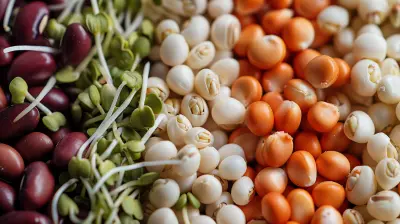

Noora Hamilton
This article highlights the benefits of organic farming for both the environment and personal health. It effectively underscores the importance of sustainable practices in agriculture, while also acknowledging that conventional farming has its own merits and challenges. A thoughtful perspective!
April 1, 2025 at 3:06 AM